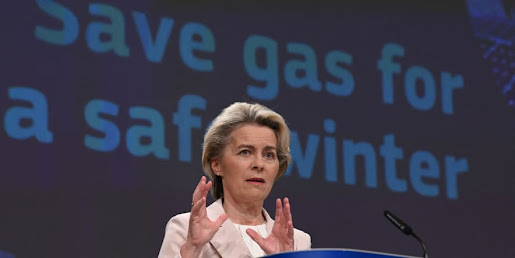Europe at the center of global economic shocks. Though growth is slowing worldwide, the continent faces ' fundamental deterioration '
In sum, Russia's invasion of Ukraine and the continuing effects of the pandemic have hobbled countries around the globe, but the relentless series of crises has hit Europe the hardest, causing the steepest jump in energy prices, some of the highest inflation rates and the biggest risk of recession.
The fallout from the war is menacing the continent with what some fear could become its most challenging economic and financial crisis in decades.
While growth is slowing worldwide, ''in Europe it's altogether more serious because it's driven by a more fundamental deterioration,'' said Neil Shearing, group chief economist at Capital Economics. Real incomes and living standards are falling, he added.
And for all of the above analysis, The World Students Society thanks author Patricia Cohen.
Taming inflation may spark recession. Inflation near double digits in many big economies, a level not seen in nearly half a century.
The message from the world's top finance chiefs is loud and clear : rampant inflation is here to stay and taming it will take an extraordinary effort, most likely a recession with job losses and shockwaves through emerging markets.
The price is still worth paying, however, Central banks spent decades building their credibility on inflation fighting skills and losing this battle could shake the foundation of modern monetary policy.
''Regaining and preserving trust requires us to bring inflation back to target quickly,'' European Central Bank board member Isabel Schnabel said. ''The longer inflation stays high, the greater the risk that the public will lose confidence in our determination and ability to preserve purchasing power.''
Banks should also keep going even if growth suffers and people start to lose their jobs.
''Even if we enter a recession, we have basically little choice but to continue our policy path,'' Schnabel said. ''If there were a de-anchoring of inflation expectations, the effect on the economy would be even worse.''
Inflation is near double-digit territory in many of the world's biggest economies, a level not seen in close to half a century. With the notable expectation of the United States, a peak is still months away.
The complication is that central banks for the most part appear to have only very limited control.
For one, high energy prices, a function of Russia's war in Ukraine, is creating a supply shock on which monetary policy has little effect.
Copious spending by governments, also outside central bank control, exacerbates the problem.
One study presented at Jackson Hole argues that half of US inflation is fiscally driven and the Fed will fail to control prices without government cooperation.
Lastly, a new inflation regime may be setting in that will keep upward pressure on prices for an extended period.
De-globalisation, the realignment of alliances due to Russia's war, demographic changes and more expensive production in emerging markets could all make supply constraints more permanent.
''The global economy seems to be on the cusp of a historic change as many of the aggregate supply tail winds that have kept a lid on inflation look set to turn into headwinds,'' Agustin Carstens, the head of BIS said. [Reuters]

.png)


0 comments:
Post a Comment
Grace A Comment!